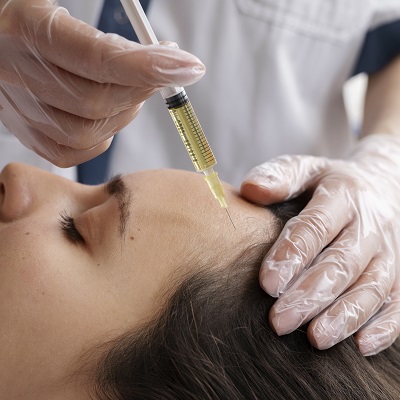 Have you ever wondered whether or not beauty or clinical treatments align with your faith? With the upward thrust of beauty and regenerative methods like PRP (platelet-rich plasma), many Muslims ask, “Is PRP halal?” This question is vital for fitness-aware folks but is additionally dedicated to observing Islamic tips. Let’s discover what PRP Hair Treatment in Islamabad is, how it works, and whether or not it can be considered halal or no longer, in keeping with Islamic teachings.
Have you ever wondered whether or not beauty or clinical treatments align with your faith? With the upward thrust of beauty and regenerative methods like PRP (platelet-rich plasma), many Muslims ask, “Is PRP halal?” This question is vital for fitness-aware folks but is additionally dedicated to observing Islamic tips. Let’s discover what PRP Hair Treatment in Islamabad is, how it works, and whether or not it can be considered halal or no longer, in keeping with Islamic teachings.
Quick facts:
- PRP is halal when using your blood
- No animal or impure substances were harmed
- Valid for medical or ethical cosmetic purposes
- Seek guidance if uncertain
What Is PRP Therapy?
Platelet-Rich Plasma (PRP) is a treatment that uses a person’s blood to promote restoration and rejuvenation. It’s widely utilized in:
- Hair healing (for hair thinning and hair loss)
- Facial rejuvenation (generally referred to as the “vampire facial”)
- Joint and muscle harm remedies (for athletes or those with persistent pain)
The technique involves drawing a small quantity of blood, spinning it in a centrifuge to concentrate the platelets, and injecting this enriched plasma back into the affected area. These platelets release growth factors that stimulate recovery, restore tissues, and regenerate cells.
Why Are Muslims Concerned?
In Islam, the idea of halal (permissible) and haram (forbidden) applies not only to food but also to medical treatments, personal care, and even beauty treatments. The number one concern with PRP consists of
- Is it derived from animal or human resources?
- Does it involve anything impure or dangerous?
- Is the method necessary, or is it simply cosmetic?
Understanding these worries calls for looking at PRP through the lens of Islamic ethics.
Is PRP Halal in Islam?
According to numerous Islamic students and study institutions, PRP therapy is usually considered halal, provided the following conditions are met:
The plasma is taken out of your body.
Since the blood used is autologous (from the same character), it does not now contain foreign or doubtlessly impure substances. This makes it fundamentally permissible.
No haram materials are delivered.
The PRP method must not include non-halal additives, such as animal-derived gels, porcine substances, or harmful chemicals.
The cause is medical or therapeutic.
If the treatment is intended to restore health (e.g., for hair loss caused by contamination or joint pain), it’s usually recommended in Islam. Pure cosmetic uses might also be halal but subject to greater scrutiny, depending on intent and modesty.
It does not now permanently adjust Allah’s Creation.
Islam encourages care for one’s body and looking inside natural limitations. As PRP enhances natural healing without completely altering functions, it is not seen as changing the creation of Allah, which is forbidden.
Benefits of PRP (Within Halal Guidelines)
- Stimulates herbal recovery
- Improves hair density
- Rejuvenates the skin’s look without a surgical procedure
- Reduces pain and inflammation in joints
- Offers minimal side effects
For Muslims who are cautious about what they put in or on their bodies, PRP gives a secure and moral alternative when carried out nicely.
When Should You Be Cautious?
Even though PRP is usually halal, double-check with the hospital about
- Source of substances used within the procedure
- Sterilization and cleanliness
- Medical necessity as opposed to arrogance motives
- Practitioner’s credibility and experience
PRP in Pakistan: Growing Awareness
Many clinics are aware of non-secular sensitivities and the upward thrust of aesthetic treatments in cities like Islamabad, Lahore, and Karachi. Clinics that simply use country, which is autologous (out of your blood) and no longer include haram substances, are more reassuring for Muslim customers.
Final Verdict
So, is PRP halal? Yes, PRP is considered halal when it uses your own blood, includes no haram components, and serves a valid clinical or ethical beauty purpose. Islam encourages self-care and healing as long as it respects the human shape and follows moral guidelines.
Whether you’re considering treating hair loss or improving joint mobility, PRP may be a pain-free choice for holistic health.



Leave Your Comment